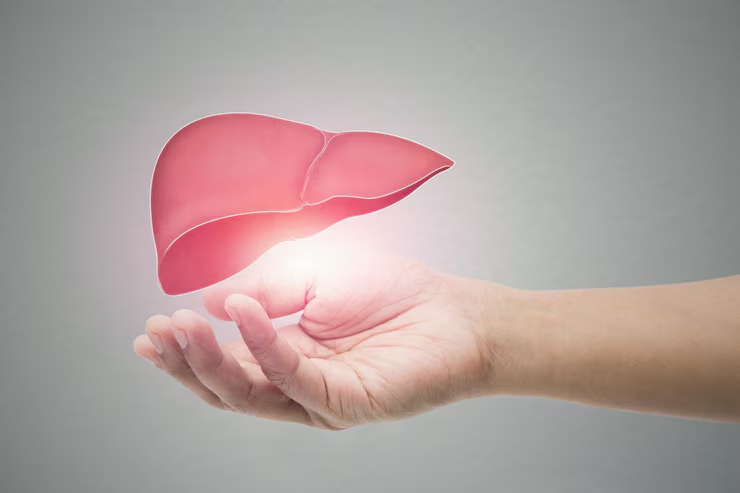Liver Cancer, also known as Hepatic Cancer, is a cancer that occurs in the liver. Cancer in the liver destroys liver cells & interferes with its ability to function normally.
Liver cancer may be primary or secondary. Primary cancer originates in the liver cells, while secondary cancer spreads to the liver from another organ. Over 90% to 95% of primary liver cancers originate from liver cells and are known as hepatocellular cancer or carcinoma.
What are the signs and symptoms of liver cancer?
- Jaundice
- Fatigue
- Fever
- Abdominal Pain
- Nausea and vomiting
- Loss of appetite
- Abdominal swelling
- Weight loss
- Enlarged liver, spleen, or both
- Fluid buildup on the abdomen
- A lump down the rib cage on the right side
- Discomfort in the back or close to the right shoulder blade
Surviving liver cancer is significantly influenced by the timing of the diagnosis and the initiation of treatment. Here’s why early treatment matters:
- Higher Success Rates: Early-stage liver cancer is more likely to be treatable with a wider range of options available, including surgery, which can be curative. Once the cancer progresses to more advanced stages, treatment becomes more complex and less likely to result in a cure.
- Less Aggressive Spread: Liver cancer can grow quickly and spread to other parts of the body. Detecting and treating the cancer before it spreads can improve survival rates significantly.
- More Treatment Options: In its early stages, liver cancer might be managed with minimally invasive treatments such as radiofrequency ablation or transarterial chemoembolization, which can target tumours more directly and with fewer side effects compared to treatments required for advanced cancer.
- Better Liver Function Preservation: Early treatment can often preserve more of the healthy liver tissue. Since the liver is vital for many bodily functions, maintaining its health is crucial. Advanced liver cancer can compromise liver function, leading to severe complications.
- Improved Quality of Life: Early detection and treatment can reduce the severity of symptoms and the likelihood of complications, thereby maintaining a better quality of life for a longer period.
- Cost-Effectiveness: Early treatment often involves less complex medical interventions compared to those required for treating advanced stages, potentially reducing the overall cost of medical care.
- Opportunity for Clinical Trials: Patients diagnosed at an early stage may also have the opportunity to participate in clinical trials, gaining access to cutting-edge treatments that might not be available otherwise.
Importance of Early Detection
To benefit from early treatment, early detection is crucial. Regular screenings and monitoring are recommended, especially for those at high risk, such as individuals with chronic hepatitis or cirrhosis. Symptoms of liver cancer, such as unexplained weight loss, persistent fatigue, or jaundice, should prompt immediate medical evaluation.
Moreover, adopting a healthy lifestyle, including maintaining a healthy weight, moderating alcohol consumption, and avoiding hepatitis infection, can help reduce the risk of developing liver cancer.
Early detection and treatment of liver cancer can drastically improve survival rates and quality of life, emphasizing the need for awareness and regular health check-ups.

